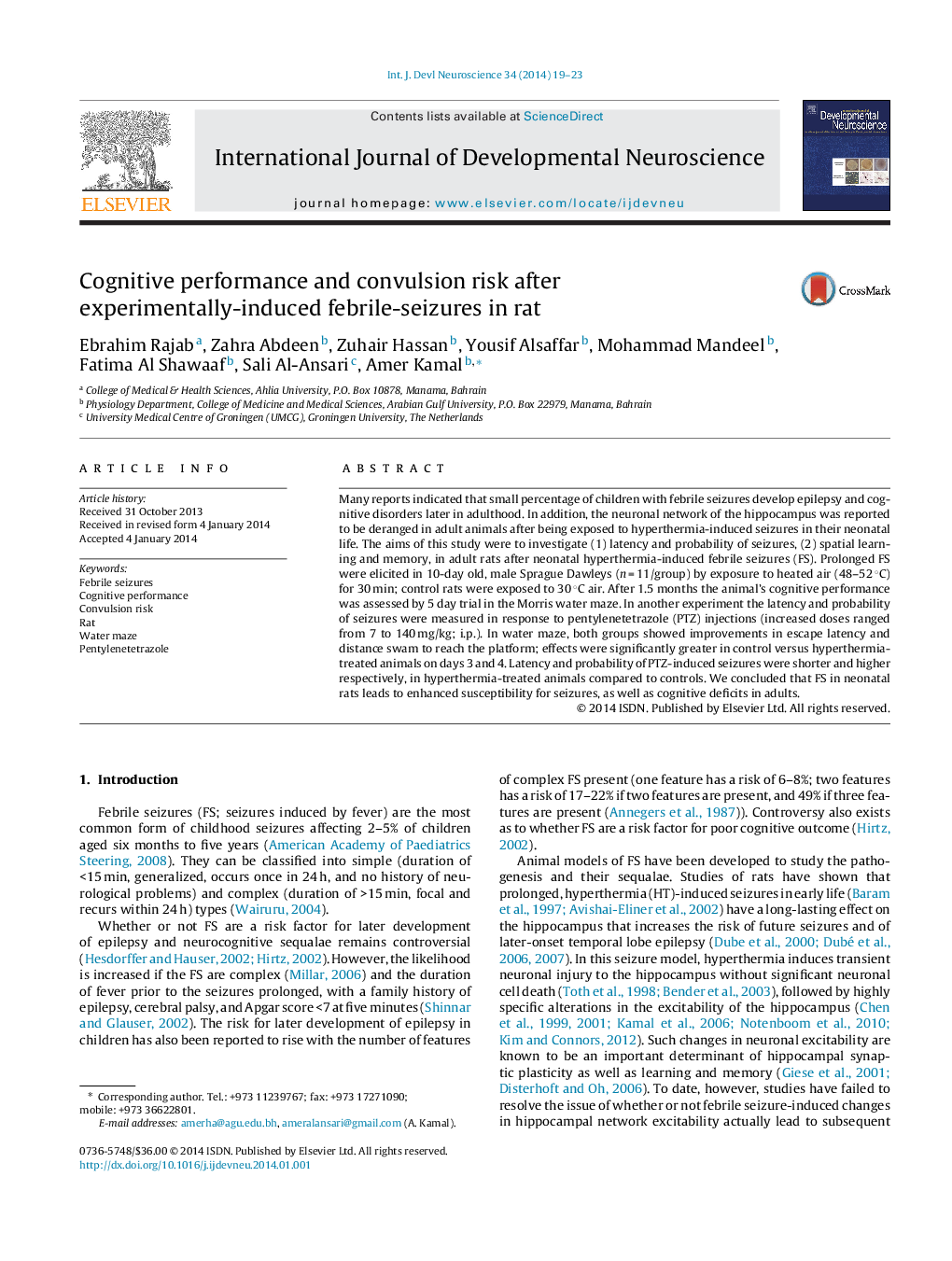| Article ID | Journal | Published Year | Pages | File Type |
|---|---|---|---|---|
| 2785938 | International Journal of Developmental Neuroscience | 2014 | 5 Pages |
•Hyperthermia-induced convulsion was performed in 10 days old rats.•Febrile seizures in neonatal rats induced learning and memory impairment in adulthood.•Animals subjected to hyperthermia showed decreased convulsion threshold.
Many reports indicated that small percentage of children with febrile seizures develop epilepsy and cognitive disorders later in adulthood. In addition, the neuronal network of the hippocampus was reported to be deranged in adult animals after being exposed to hyperthermia-induced seizures in their neonatal life. The aims of this study were to investigate (1) latency and probability of seizures, (2) spatial learning and memory, in adult rats after neonatal hyperthermia-induced febrile seizures (FS). Prolonged FS were elicited in 10-day old, male Sprague Dawleys (n = 11/group) by exposure to heated air (48–52 °C) for 30 min; control rats were exposed to 30 °C air. After 1.5 months the animal's cognitive performance was assessed by 5 day trial in the Morris water maze. In another experiment the latency and probability of seizures were measured in response to pentylenetetrazole (PTZ) injections (increased doses ranged from 7 to 140 mg/kg; i.p.). In water maze, both groups showed improvements in escape latency and distance swam to reach the platform; effects were significantly greater in control versus hyperthermia-treated animals on days 3 and 4. Latency and probability of PTZ-induced seizures were shorter and higher respectively, in hyperthermia-treated animals compared to controls. We concluded that FS in neonatal rats leads to enhanced susceptibility for seizures, as well as cognitive deficits in adults.
